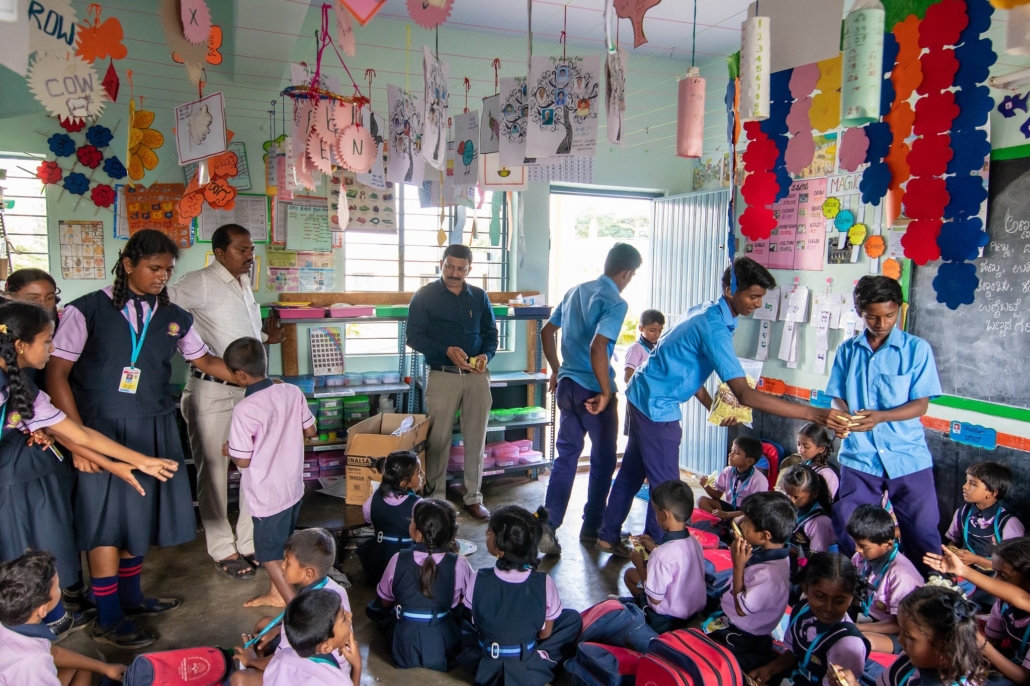How NGOs Have Evolved in the Midst of COVID-19

Non-governmental organizations, or NGOs, have worked to assist those in the most need around the world. With the development of a global pandemic, COVID-19, however, multiple NGOs have had to reform multiple aspects of their organizations’ systems, changing elements from distribution of services to availability of staff around the world. Despite the coronavirus, however, many NGOs and large companies have collaborated in order to further their missions and goals, while still maintaining strict protocols for staff in order to minimize the development of the negative effects associated with COVID-19. This article will explain how NGOs have evolved amidst the COVID-19 pandemic.
What is an NGO?
According to the United Nations, a “non-governmental organization,” most commonly referred to as an “NGO,” is defined as, “a not-for-profit, voluntary citizen’s group that is organized on a local, national, or international level to address issues in support of the public good.” NGOs often aim to address certain issues faced by vulnerable individuals, including those who are living in poverty or are disabled. NGOs are crucial in international development, often receiving funding from individuals in relatively richer countries and bilateral development agencies as well. In addition, while some NGOs focus on pursuing an individual policy objective, others uphold a more multifaceted approach, promoting various policy objectives, such as homelessness eradication or the reduction of global hunger.
Changes to the Ford Foundation During the COVID-19 Pandemic
With the recent development of the prevalence of the coronavirus pandemic around the world, NGOs have evolved with both minor and drastic changes to the implementation of their services while also ensuring the safety of their processes. Elizabeth Knup, the regional director in China for the Ford Foundation, explained that staff has primarily been working from home as a result of the fact that the organization is deemed non-essential with regard to the maintenance of the economy. According to Knup, approximately 40% of what the Ford Foundation does includes getting together with grantees, paying visits to their locations and taking part in their events. However, much of the work of the Ford Foundation has experienced severe limitations due to the necessity to maintain social distancing and personal quarantining measures, along with the prevention of government events, during the COVID-19 pandemic.
Despite this, the Ford Foundation has decided to partner with one of its grantees to better promote volunteerism among individuals with white-collar jobs. Such a decision to pursue volunteerism has also involved the government making it increasingly possible for more and more individuals to partake in volunteering services. In addition, in this way, the government is working to enhance its ability to conduct effective organization of volunteers. The Ford Foundation has also been collaborating with one of its other grantees in order to enhance a platform for domestic Chinese foundations to fuse their particular resources and be stronger and more supported as a larger network. When questioned about the likelihood that civil society NGO roles would increase in the aftermath of the coronavirus pandemic, Knup explained that, in crises, NGOs have provided a large amount of aid to those in the most need, not only with regard to relief but also in the case of continued aid post-crisis.
Other NGOs
In addition to the Ford Foundation, however, other NGOs have evolved to further their missions with the aid of others. For example, the United Nations Office for the Coordination of Humanitarian Affairs, also known as OCHA, has been contributing funds to NGOs around the world in order to further the positive effects of their services. As a result of this funding, for example, CARE Sudan has been able to develop isolation centers in the South Kordofan State and provide training to about 150 volunteers to kickstart awareness campaigns regarding the coronavirus.
Meanwhile, the Humanitarian Fund in Yemen collaborated with the Abyan Youth Foundation in order to incorporate coronavirus education measures into its programs. In addition to making prevalent such information, however, the organizations have also worked to distribute hygiene kits to populations in the most need. The Kachin Baptist Convention in Myanmar has served as one of multiple NGOs that has consistently been working to ensure that individuals resulting in camps for internally displaced people (IDP) are able to access clean water in order to prevent themselves from contracting coronavirus. With such funding, the NGO has also ensured that over 2,400 vulnerable individuals would take the necessary hygiene protocols to minimize the prevalence of COVID-19.
Globally, COVID-19 has negatively impacted aspects of society, including increasing violence among workers, bringing about the sudden development of outbreaks as a result of missed vaccinations, global remittances getting squeezed as a result of business shutdowns and being observed to increase the number of individuals facing a food crisis dramatically. With these warnings in mind, however, NGOs like those previously mentioned, have evolved and are working tirelessly to enact positive change globally, bringing hope to those who need it most. From collaborating with other NGOs and companies to working independently with the aid of funding from other resources, NGOs have brought about massive reform to their structures of service in order to function more efficiently. Although the future of NGOs is uncertain as a result of the current global pandemic, it is evident that many are becoming increasingly aware of how to restructure in ways they most likely have never imagined. With this in mind, then, NGOs seem poised to emerge from this pandemic stronger than ever.
– Aprile Bertomo
Photo: Flickr
